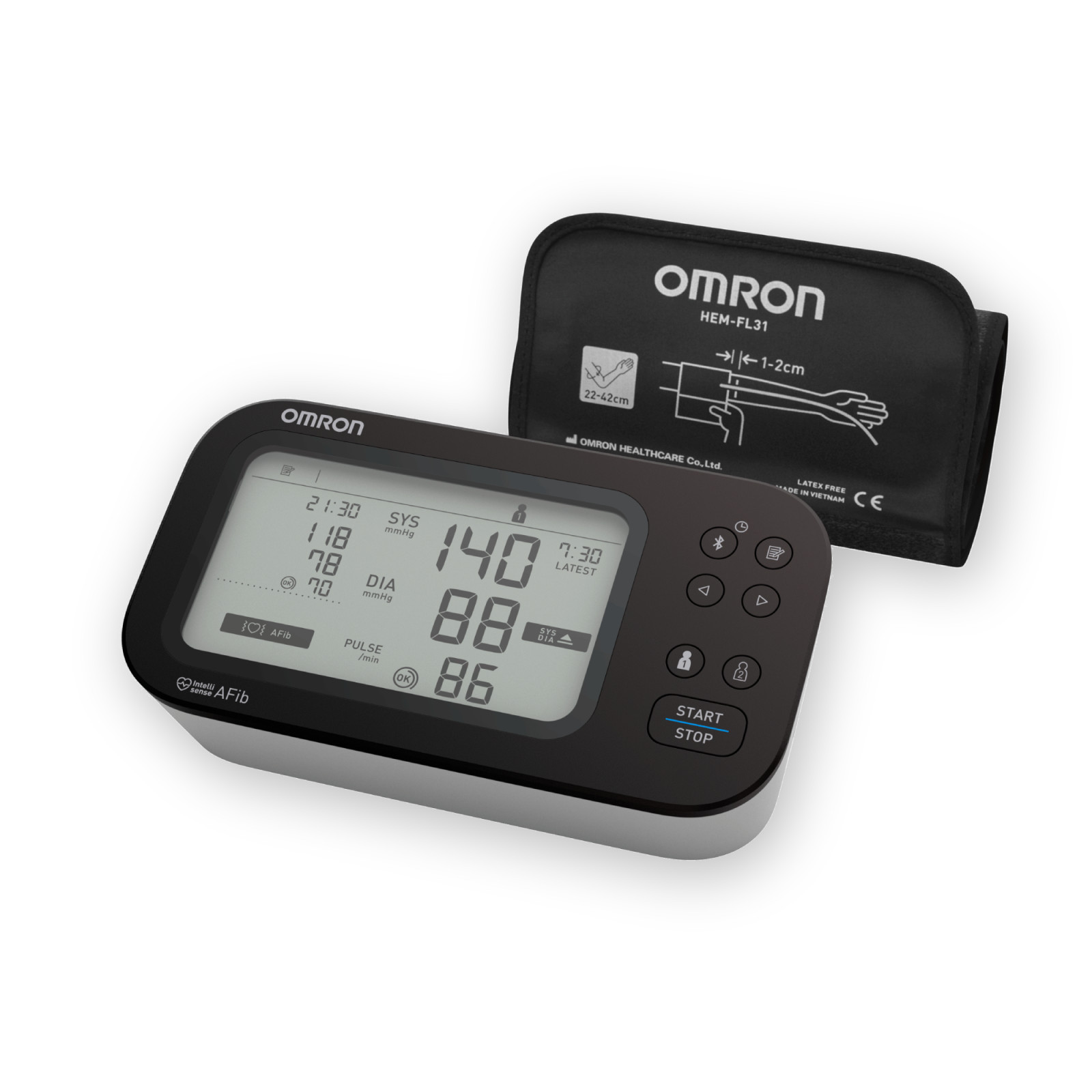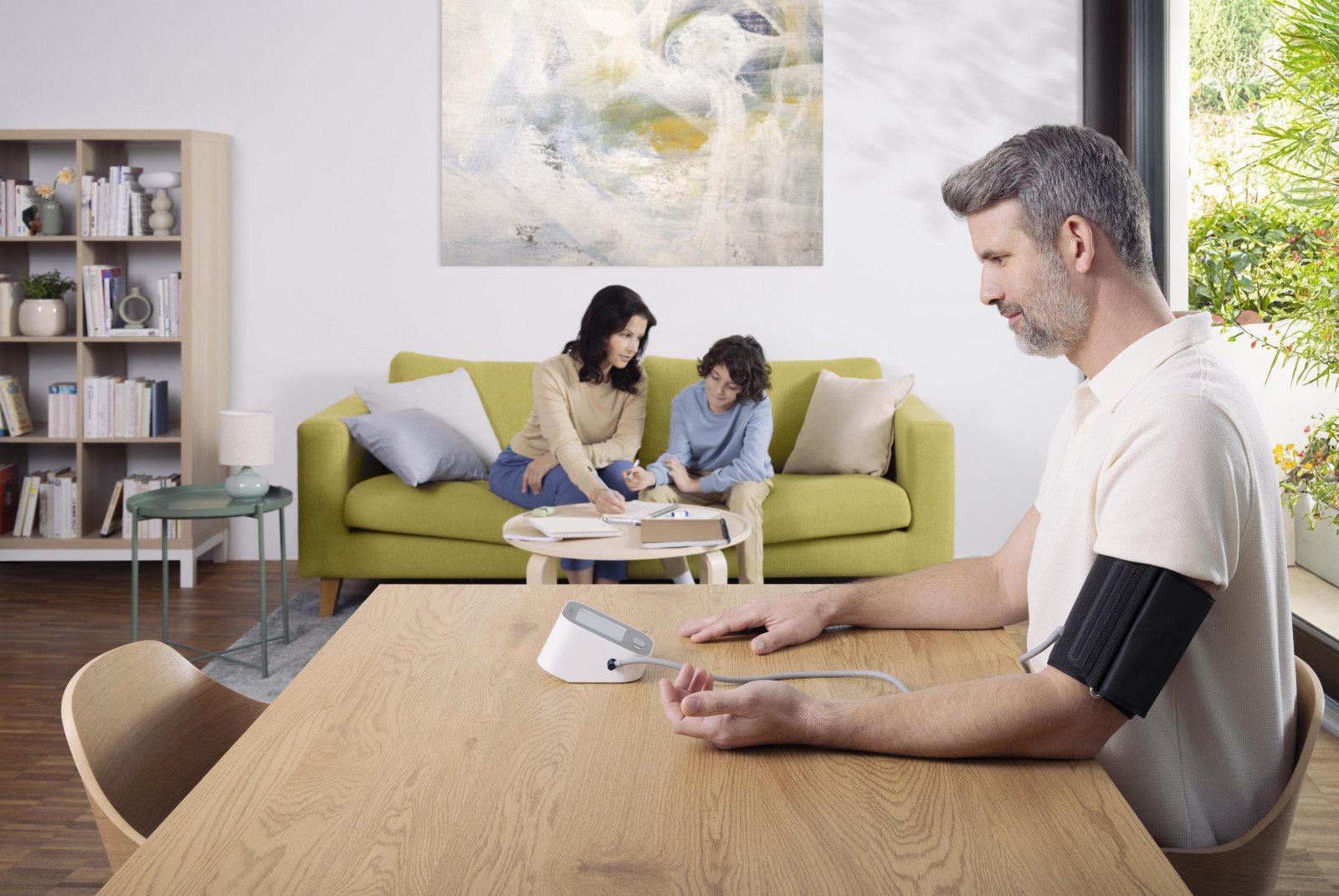
Cardiovascular Topics
Might hypertension be a red flag for dementia?
When we think about maintaining our cognitive health, the connection to blood pressure may not be the first thing that comes to mind. However, growing research suggests a close relationship between hypertension and the risk of dementia. As our global population ages, the focus on preventative measures is more critical than ever. Could keeping a closer eye on our blood pressure—perhaps even at home—be a key step in protecting the brain?

How does hypertension impact cognitive health?
Hypertension, often referred to as the "silent killer" affects millions of people worldwide, and its role in heart disease and stroke is well-documented. But its connection to the brain and the relationship between blood pressure and dementia are less widely known. Dementia, an umbrella term for cognitive decline symptoms, and other impairments, severe enough to interfere with daily life, includes conditions like Alzheimer’s disease. It’s increasingly evident that high blood pressure over time can damage the brain’s blood vessels, potentially reducing blood flow and oxygen supply to critical areas.
This chronic strain on the vascular system might lead to changes in the brain, such as the build-up of amyloid plaques or microbleeds, which are known to be associated with cognitive decline. Studies have found that mid-life hypertension can increase the risk of Alzheimer’s by as much as 25%, depending on the severity of high blood pressure.1,2
Mid and late-life hypertension: timing is key
Timing is everything when it comes to the relationship between blood pressure and dementia risk. Evidence suggests that hypertension in mid-life (ages 40–65) is particularly impactful. During this period, untreated high blood pressure doubles the risk of developing dementia and experiencing early symptoms of cognitive decline later in life. Why? It’s likely because long-term exposure to elevated blood pressure levels accelerates damage to the arteries, including those in the brain.
Interestingly, the story changes in late life. For individuals over 75, the relationship between hypertension and dementia risk becomes more complex. Some studies suggest that both very high and very low blood pressure are associated with cognitive decline, creating a U-shaped relationship. This variability highlights the importance of lifelong blood pressure management and adapting interventions to each stage of life.1,2
How home blood pressure monitoring might reduce the risk of dementia
Managing hypertension effectively could be one of the most practical steps in reducing the risk of dementia. But for many, monitoring blood pressure feels confined to occasional visits to the doctor, a scenario that can miss critical fluctuations in day-to-day life. This is where home blood pressure monitoring becomes invaluable.
Devices such as OMRON blood pressure monitors offer people a convenient, reliable way to track their blood pressure regularly. Home monitoring allows for consistent readings over time, revealing trends that might not be apparent in isolated clinic measurements. It empowers individuals to take an active role in managing their health and spotting any red flags before they escalate.
Furthermore, it’s no coincidence that the NHS recently published (November 5th 2024) a review of recommended blood pressure monitors and within the 5 devices reviewed, 2 of them were OMRON BP monitors.3
In addition, it’s worth mentioning www.stridebp.org, an international scientific non-profit organisation of hypertension experts. OMRON BP monitors are listed on the website due to the fact that they’re clinically validated for their accuracy.
The importance of treatment cannot be overstated. Studies show that individuals who control their blood pressure effectively, whether through medication, lifestyle changes, or both, significantly reduce their risk of cognitive decline. In fact, those who receive proper treatment for hypertension do not exhibit the same elevated dementia risk as those with unmanaged hypertension.1,2
Moreover, it’s possible that even small reductions in systolic blood pressure can lead to substantial decreases in dementia risk.
Conclusion: a simple act with potentially lifelong benefits
Hypertension and dementia might seem like distant cousins, but the evidence suggests they’re more closely related than we once thought. By monitoring and managing blood pressure—starting in mid-life and continuing into our later years—we can take meaningful steps toward preserving our cognitive health.
The good news is that advances in home blood pressure monitoring technology, such as OMRON devices, make it easier than ever to take control of this silent threat. While no single action guarantees freedom from dementia, staying informed, proactive, and engaged with our health lays the foundation for a healthier future.
Could managing blood pressure be key to protecting the brain? It’s a question worth exploring.
References
- Sierra, Cristina. “Hypertension and the Risk of Dementia.” Frontiers in Cardiovascular Medicine, vol. 7, no. 5, 31 Jan. 2020, https://doi.org/10.3389/fcvm.2020.00005.
- A New Focus on Hypertension and Dementia. InSight+ 2024. Available at: https://insightplus.mja.com.au/2024/38/a-new-focus-on-hypertension-and-dementia/. Accessed November 2024.
- Health&Living. The Best Blood Pressure Monitors of 2024. Available at: https://healthandliving.net/best-blood-pressure-monitors-in-the-uk-2024. Accessed November 2024.






